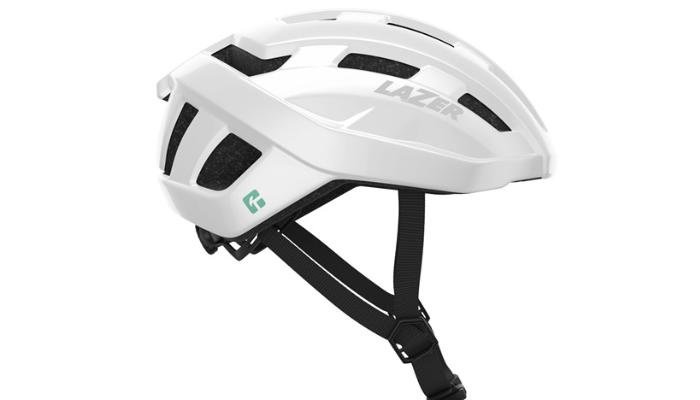Lazer Sport Unveils 3D Printed Bicycle Helmets With KinetiCore Technology

In recent years, the emergence of 3D printing within the cycling realm has become increasingly prevalent. We’ve explored innovations such as more ergonomic saddles, enhanced bike comfort, and even fully customizable bicycles like those created by INTENSE and Aston Martin. This week marks another advancement, as Lazer Sport NV, a prominent European cycling helmet manufacturer, recently announced the development of a new lineup of 3D printed bicycle helmets.
Lazer Sport is innovating by developing a new generation of bicycle helmets designed to improve cyclists’ comfort and safety, while minimizing its ecological footprint. To achieve this goal, the company has opted for the full use of Siemens Xcelerator industrial software. This strategic decision aims to bolster the launch of KinetiCore, a new technology adopted by Lazer Sport to mitigate rotational impact forces. In the unfortunate event of a fall while cycling, where the skull undergoes impact, the brain is subject to both linear acceleration and rotation. KinetiCore protection, featuring distinctive deformation zones, endeavors to minimize the repercussions of both linear and rotational forces during such impacts. Crafted with specialized zones engineered to deform upon impact, these components serve to redirect energy away from the brain. Lazer Sport’s primary aim is to deliver comprehensive impact protection for cyclists, whether cycling concrete streets or venturing rugged off-road terrain.

Photo Credits: Lazer Sport
3D Printing at the Heart of New Bicycle Helmets
The KinetiCore development team utilized Siemens Xcelerator from Siemens Digital Industries Software. It’s important to note that Siemens Xcelerator includes a comprehensive suite of 3D printing solutions, bringing together various partnerships in the additive manufacturing industry. Lazer Sport utilizes Siemens’ NX™ software for product design and manufacturing, along with Simcenter™ 3D software for digital simulation and verification. Employing a CAD program, the team conducted simulations to foresee the strength of the helmet after enduring realistic impact. This approach expedited the process and proved more cost-effective, streamlining the testing of multiple models without the need for expensive prototypes. Emiel Spreeuwers, Product Designer at Lazer Sport explained:
The development of KinetiCore required a huge amount of design changes and simulations. We chose the Siemens Xcelerator portfolio for its wide range of applications and the ability to seamlessly connect 3D design with 3D printing for prototyping and digital simulation. With Siemens’ NX we were able to create more complex designs for our helmets and molds and simulate them. This allowed for greater design complexity, enhanced freedom, and faster time to market”
Additionally, KinetiCore protection offers helmets up to 23% lighter, as well as 12% greater cooling efficiency thanks to innovative vents that channel cool air to the rear of the helmet and expel hot air, improving rider comfort. KinetiCore is also made with less plastic than previous comparable models, supporting Lazer Sport’s commitment to reducing environmental impact. The focus is on optimal performance, environmentally friendly materials, and self-sufficient production. With KinetiCore to be integrated into 20 models by the end of 2024, these bicycle helmets offer an immense improvement in safety and design for all cycling enthusiasts.
What do you think of Lazer Sport’s 3D printed bicycle helmets? Let us know in a comment below or on our LinkedIn, Facebook, and Twitter pages! Don’t forget to sign up for our free weekly newsletter here the latest 3D printing news straight to your inbox! You can also find all our videos on our YouTube channel.
*Cover Photo Credits: Freepik







